Apex Recovery has multiple rehabilitation centers across Tennessee, offering comprehensive addiction treatment services. With locations strategically spread throughout the state, those seeking recovery from substance abuse can access personalized care, including medical detoxification, therapy, and aftercare programs, conveniently close to home.
Apex Addiction Recovery Center provides specialized meth addiction treatment to address substance abuse, mental health disorders, and dual diagnosis cases. Our inclusive programs integrate evidence-based therapies and holistic recovery approaches to handle the complex needs of clients struggling with methamphetamine addiction, co-occurring mental health conditions, or both, inspiring ongoing recovery and improved overall well-being. Call us today at (877) 881 2689 – we are here to listen.
What is a Methamphetamine Addiction Treatment Program?
A methamphetamine addiction treatment program is a structured and comprehensive program designed to help you overcome your addiction to methamphetamine. These recovery programs typically offer a combination of therapies and interventions tailored to address the specific needs of each patient, giving you strategies to break out of the addiction cycle.
Treatment may include behavioral therapies such as cognitive-behavioral therapy (CBT) and contingency management, counseling to address underlying issues and triggers for drug use, support groups, medication-assisted treatment to manage withdrawal symptoms and cravings, and holistic approaches to promote overall well-being. The goal of a methamphetamine addiction treatment program is to help you achieve and maintain abstinence from methamphetamine while also addressing any co-occurring mental health disorders or social issues that may contribute to addiction.

Learning About Methamphetamine Use Disorder (MUD)
Methamphetamine Use Disorder (MUD) is a serious condition characterized by compulsive use of methamphetamine despite ill effects. Methamphetamine, a potent stimulant, affects the brain’s dopamine system, leading to intense feelings of euphoria and increased energy. Prolonged use can result in tolerance, dependence, and severe physical and mental health issues.
People with MUD may experience a range of meth addiction symptoms, including cravings, withdrawal symptoms, insomnia, paranoia, and cognitive impairment. Treatment for Methamphetamine Use Disorder typically involves a combination of behavioral therapies, counseling, support groups, and sometimes medication to manage withdrawal symptoms and cravings. Early intervention and comprehensive treatment are crucial for addressing MUD and promoting long-term recovery.
Learning About The Popular Towns and Attractions of Middle Tennessee
Middle Tennessee offers an exciting blend of history, culture, and entertainment, making it a must-visit destination in the Volunteer State. Nashville, known as Music City, is the country music capital and is steeped in rock ‘n’ roll history. Visitors can explore famous attractions like the Country Music Hall of Fame, the Ryman Auditorium, and lively honky-tonks. Nashville’s culinary scene tempts taste buds with Nashville hot chicken and barbecue culture, while its Southern hospitality ensures a warm welcome for all.
Outside of Nashville, history buffs can dig into Civil War history at sites like the Tennessee River and explore Appalachian culture in charming towns. The region boasts natural beauty with the nearby Smokies and offers tours of the Jack Daniel’s Distillery for a taste of authentic Tennessee whiskey. From moonshine to blues music, Middle Tennessee embodies the soul of the South, inviting visitors to immerse themselves in its rich heritage and vibrant energy.



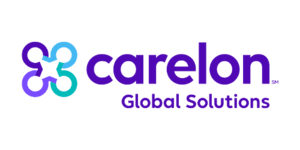
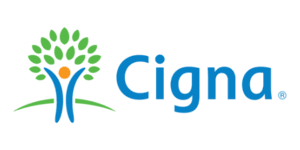

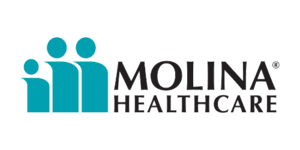
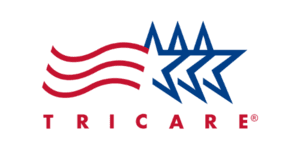
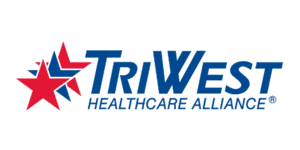

Contact Apex Recovery Tennessee to check your insurance coverage levels and discuss your meth addiction treatment needs.
Does Health Insurance Cover Methamphetamine Addiction Rehab in Tennessee?
Yes, health insurance typically covers Methamphetamine addiction rehab in Tennessee, however, it varies depending on the specific insurance plan. Many insurance providers offer coverage for addiction treatment services, including methamphetamine rehab, as part of their mental health and substance abuse treatment benefits. However, coverage may differ in terms of deductibles, copayments, and limitations on the types of treatment programs or facilities covered.
It’s vital to review your insurance policy and contact Apex Alcohol and Drug Addiction Recovery Center directly to understand your coverage options for methamphetamine addiction treatment. Additionally, our rehab facilities can check your insurance or explore alternative payment options for those without insurance.
Addiction Centers That Offer Meth Rehab in Tennessee
Located in Brentwood and Columbia, we have dedicated methamphetamine rehab facilities in each area to provide personalized care and support.
- Apex Recovery Brentwood: 209 Ward Circle, Brentwood TN, 37027
- Apex Recovery Columbia: 2710 Trotwood Ave STE A & B Columbia, TN 38401
Fill in the form below to request a call back from Apex Recovery Tennessee
What Are the Health Insurance Providers That Offer Coverage for Methamphetamine Use Disorder Rehab?
Several major health insurance providers in Tennessee offer coverage for methamphetamine use disorder rehab, including Blue Cross Blue Shield (BCBS), Aetna, Cigna, UnitedHealthcare, Humana, and Anthem. These insurance companies typically include addiction treatment services as part of their mental health and substance abuse benefits.
However, coverage specifics, such as deductibles, copayments, and network restrictions, may vary depending on your plan. It’s crucial for people seeking methamphetamine rehab to contact Apex Alcohol and Drug Addiction Recovery Center to understand the extent of their coverage and any out-of-pocket expenses they may incur.

How Much Do Meth Treatment Programs Cost in Middle Tennessee Without Health Insurance Coverage?
The cost of meth treatment programs in Middle Tennessee without health insurance coverage can range widely depending on several factors, including the type of program, the duration of treatment, and the specific services offered. On average, you can expect to pay anywhere from a few thousand dollars to tens of thousands of dollars for a comprehensive treatment program.
Outpatient programs may be less expensive than residential or inpatient programs due to fewer overhead costs. Additionally, some treatment centers, like Apex Substance Addiction Recovery Center, offer sliding scale fees or financial assistance options for patients without insurance coverage to help make treatment more accessible.

Check Your Insurance
Apex Recovery Tennessee is in-network and accepts most major health insurance plans to make methamphetamine rehab treatment more accessible. Contact us today to check your coverage!
Can You Tell if Someone is Addicted to Methamphetamine?
Identifying whether someone is addicted to methamphetamine can be challenging, as addiction often manifests differently in each person. However, there are common signs and symptoms that may indicate a person is struggling with methamphetamine addiction. Encouraging people displaying these meth addict signs to seek professional help from addiction specialists or treatment centers is vital. Early intervention and support can greatly impact your recovery journey, providing you with the resources and guidance necessary to overcome addiction and reclaim your life.
Physical signs
- Rapid weight loss: Methamphetamine use often suppresses appetite, leading to significant and rapid weight loss over a short period.
- Dilated pupils: Methamphetamine use can cause pupils to become noticeably enlarged, even in well-lit environments.
- Dental issues (“meth mouth”): Chronic methamphetamine use can result in severe dental problems, including tooth decay, gum disease, and tooth loss.
Behavioral signs
- Increased secrecy: People may become more secretive about their activities, whereabouts, and relationships, often avoiding discussions about their behavior.
- Social withdrawal: Methamphetamine addiction can lead to isolation as meth addicts prioritize drug use over social interactions and relationships.
- Neglect of responsibilities: Those addicted to methamphetamine may neglect personal, professional, and familial responsibilities, focusing solely on obtaining and using the drug.
Psychological symptoms
- Anxiety and paranoia: Methamphetamine use can induce feelings of intense anxiety, paranoia, and fearfulness, often leading to irrational thoughts and behaviors.
- Depression: People may experience profound feelings of sadness, hopelessness, and despair, sometimes leading to thoughts of self-harm or suicide.
- Mood swings: Methamphetamine addiction can cause significant fluctuations in mood, with people experiencing sudden and unpredictable changes in temperament and emotional stability.
What Are Different Types of Methamphetamine Addiction Treatment Programs in Tennessee?
In Tennessee, various methamphetamine addiction treatment programs cater to different needs. These include Partial Hospitalization Programs (PHP), offering intensive daytime therapy while allowing you to return home at night; Intensive Outpatient Programs (IOP), providing structured therapy sessions several times a week; residential programs, offering 24/7 care within a supportive environment; and detox treatment, assisting you in safely managing withdrawal symptoms.
Detox Treatment for MUD
Detox treatment for Methamphetamine Use Disorder (MUD) in Tennessee involves medically supervised withdrawal management to safely and comfortably manage the acute effects of methamphetamine cessation. These programs provide round-the-clock care, monitoring, and support to help you navigate withdrawal and meth addiction symptoms and prepare for ongoing addiction treatment. Detox treatment sets the foundation for successful recovery from methamphetamine addiction.
Residential Program for MUD Rehab
Residential programs for Methamphetamine Use Disorder (MUD) rehab in Tennessee offer immersive, 24/7 care within a supportive environment. You reside at the facility for the duration of treatment, receiving comprehensive therapy, counseling, and medical support personalized to your needs. Residential programs provide a structured and therapeutic setting conducive to healing and recovery from methamphetamine addiction.
Intensive Outpatient Program (IOP) for MUD Rehab
Intensive Outpatient Programs (IOP) for Methamphetamine Use Disorder (MUD) rehab in Tennessee offer flexible treatment options with planned therapy sessions several times a week. These programs provide comprehensive counseling, education, and support for patients recovering from methamphetamine addiction while allowing them to maintain their daily routines and responsibilities. IOP encourages accountability and long-term recovery in a supportive community setting.
Partial Hospitalization Programs (PHP) for MUD Rehab
Partial Hospitalization Programs (PHP) for Methamphetamine Use Disorder (MUD) rehab in Tennessee offer structured therapy and support during the day, allowing you to return home in the evenings. These programs often involve intensive counseling, group therapy, medication management, and education about addiction and recovery. PHPs provide a comprehensive approach to treatment while accommodating your daily responsibilities and support systems.
Apex Recovery Tennessee offers free drug and alcohol addiction assessments as part of the rehab treatment admissions process. Contact us to learn more.
Are There Withdrawal Symptoms from Meth Use?
Withdrawal from methamphetamine use can induce a range of physical and psychological symptoms as the body adjusts to the absence of the drug. While not typically life-threatening, methamphetamine withdrawal can be uncomfortable and challenging without proper support. Symptoms typically peak within the first few days and gradually diminish over time.
Symptoms of Meth Withdrawal
Here are some common withdrawal symptoms associated with methamphetamine use:
- Fatigue: People may experience extreme tiredness and lethargy as their body readjusts to functioning without methamphetamine.
- Increased appetite: Methamphetamine withdrawal can lead to intense hunger and cravings for food, particularly high-calorie and sugary items.
- Disturbed sleep patterns: Insomnia and disrupted sleep are common during withdrawal, with people experiencing difficulty falling asleep or staying asleep.
- Intense drug cravings: Cravings for methamphetamine can be overwhelming during withdrawal, driving people to seek out the drug despite their desire to quit.
- Restlessness and agitation: Feelings of restlessness and agitation are common during withdrawal, often leading to irritability and difficulty concentrating.
- Body aches and tremors: Physical discomfort such as muscle aches and tremors may occur as the body adjusts to functioning without methamphetamine.
Are There Free Assessments and Testing for MUD in Middle Tennessee
Yes, Apex Recovery in Middle Tennessee offers free assessments and testing for Methamphetamine Use Disorder (MUD) as part of our admissions process. These assessments are conducted by experienced professionals who specialize in addiction treatment and recovery. They provide you with a comprehensive evaluation of your addiction history, medical and mental health status, and treatment needs.
This complimentary service helps you gain insight into your addiction and make informed decisions about your recovery journey. By offering free assessments and testing, Apex Addiction Recovery in Tennessee demonstrates our commitment to providing accessible and high-quality care to those struggling with methamphetamine addiction.
Which Heroin Rehab Program Is Right for You?
Heroin addiction treatment in Tennessee can be done in inpatient or outpatient programs. The choice depends on the specifics of individual cases. Residential treatment recovery programs are a better fit for individuals who:
- Are isolated from their family and friends
- Have problems at work or school
- Have experienced substantial financial losses as part of their addiction
- Have problems in their relationships
- Have stolen money or items to be able to come by heroin
Heroin is highly addictive, and because of such nature, it is generally considered that residential rehab programs, also known as inpatient treatment programs, are more beneficial for these clients. Inpatient programs have around-the-clock support and supervision by professionals. They can connect with other clients who are going through the same process. Additionally, inpatient programs have access to other non-counseling programs that strengthen the effects of therapy, such as wellness regimens, proper nutrition, holistic healing, and experiential therapies.
Outpatient addiction programs require a considerable time commitment from the client. However, when the addiction isn’t fully developed or hasn’t taken an excessive toll on the client’s relationships and career, and when they are undergoing rehab for the first time, an outpatient treatment program setting could work.
A Meth Rehab Program Can Help Identify and Work Through Meth Use
Methamphetamines are extremely dangerous and, at the same time, worryingly widespread. Many users see methamphetamine as a functional tool to work more and eat less. The misuse of this originally legal drug started in the 1960s in California. However, the 1990s saw an epidemic, and the number of clients in meth addiction treatment programs increased around four times in California by 2002.
Methamphetamine addiction is particularly devastating for people and those close to them. Developing dependence is rapid and grave, while many users state they felt addicted after their first use. This explains why rehabilitation in a drug rehab center like Apex Recovery San Diego is the best chance for a person’s success in recovery.
How To Find an Methamphetamine Addiction Rehab Facility Near Me
Finding a methamphetamine addiction rehab facility nearby requires a systematic approach. Here’s a step-by-step guide to assist you:
- Evaluate Your Needs: Determine the level of care you require (inpatient rehab or outpatient treatment, for example) and any specific preferences or requirements you have for treatment.
- Investigate Online: Utilize search engines like Google and Bing by entering terms such as “Meth rehab near me”, “meth rehab centers”, “ treatment for meth addiction” or “Methamphetamine addiction treatment center in Tennessee.” This will yield a list of facilities in your vicinity.
- Online Directories: Explore online directories specializing in addiction treatment facilities. Websites like SAMHSA’s Treatment Locator or Psychology Today’s therapist directory can provide comprehensive lists of rehab centers.
- Insurance Coverage: Check if your health insurance plan covers addiction treatment services. Contact Apex Drug and Alcohol Addiction Recovery Center to understand your coverage options and any out-of-pocket expenses.
- Confirm Accreditation: Ensure that the rehab facility you’re considering is accredited by reputable organizations such as The Joint Commission or the Commission on Accreditation of Rehabilitation Facilities (CARF). Accreditation guarantees that the facility meets specific standards of care and quality.
- Check Reviews: Research the reputation of potential rehab centers by reading online reviews and testimonials from former patients or their loved ones. Pay attention to feedback regarding the facility’s staff, treatment effectiveness, and overall experience.
- Reach out to Facilities: Reach out to the rehab centers on your list to inquire about their treatment programs, amenities, and availability. Ask questions regarding their approach to methamphetamine addiction treatment and any specialized rehabilitation services they offer.
- Tour the Facility: If possible, schedule a visit to the facilities you’re considering. Touring the facility allows you to assess the environment, meet staff members, and get a sense of the overall atmosphere. It’s also an opportunity to ask additional questions and ensure the facility aligns with your needs and expectations.
What is the Methamphetamine Use Disorder (MUD) Admissions Process at Apex Recovery?
At Apex Recovery, the admissions process for Methamphetamine Use Disorder (MUD) treatment is designed to be supportive, efficient, and tailored to your needs. Our goal is to provide a seamless transition into our comprehensive treatment programs, ensuring that you receive the personalized care you deserve. Throughout the admissions process, our team at Apex Recovery is committed to providing compassionate care, support, and guidance every step of the way. We understand that seeking treatment for Methamphetamine Use Disorder can be overwhelming, and we strive to make the process as seamless and comfortable as possible for you and your family. Call us at (877) 881 2689 or contact us today. Here’s an overview of the admissions process for MUD treatment at Apex Recovery:
Initial Contact
The admissions process typically begins with an initial contact, where you or your loved ones reach out to us to inquire about treatment options for Methamphetamine Use Disorder. Our compassionate admissions staff are available to answer questions, provide information about our programs, and guide you through the next steps.
Complimentary Assessment
As part of the admissions process, Apex offers a complimentary assessment and evaluation for those struggling with Methamphetamine Use Disorder. This assessment is conducted by experienced professionals who specialize in addiction treatment and recovery. It provides valuable insights into your addiction history, medical and mental health status, and treatment needs, helping us develop a personalized treatment plan.
Verification of Insurance
If applicable, our admissions team assists you in verifying your insurance coverage to determine the extent of your benefits for MUD treatment at Apex Recovery. We work with a variety of insurance providers to help you access the care you need while minimizing out-of-pocket expenses.
Customized Treatment Plan
Based on the results of the assessment and verification of insurance, our clinical team collaborates to develop a customized treatment plan fit to your unique needs, preferences, and goals. This may include a combination of therapies, counseling, medication-assisted treatment, and other supportive services to address Methamphetamine Use Disorder comprehensively.
Admission and Orientation
Once the treatment plan is finalized, you are admitted to Apex Recovery and welcomed into our supportive community. During the admission process, you receive a thorough orientation to familiarize you with our facility, staff, rules, and expectations. This helps ensure a smooth transition into our treatment program and sets the stage for a successful recovery journey.
Tennessee Rehabilitation Process for Meth Addiction Treatment
In Tennessee, the rehabilitation process for methamphetamine addiction typically follows a structured and comprehensive approach addressing the physical, psychological, and social aspects of addiction. Treatment programs in Tennessee are designed to support you through each stage of recovery, from meth detox centers to ongoing support and relapse prevention. Here’s an overview of the rehabilitation process for methamphetamine addiction treatment in Tennessee:
- Assessment and Evaluation: This involves gathering information about your history of methamphetamine use, medical and mental health status, and any co-occurring disorders or underlying issues that may impact your treatment needs.
- Detoxification: Medical detoxification programs in Tennessee provide supervised withdrawal management to help you safely and comfortably manage the acute effects of methamphetamine cessation. This may involve medical interventions to alleviate withdrawal symptoms and ensure your safety throughout the detox process.
- Therapy and Counseling: Evidence-based therapies such as cognitive-behavioral therapy (CBT), motivational interviewing, and contingency management are commonly used to address the underlying causes of addiction, modify maladaptive behaviors, and develop coping skills to prevent relapse.
- Support Groups: In Tennessee, support groups such as Narcotics Anonymous (NA) or SMART Recovery offer peer support and encouragement for people in recovery from methamphetamine addiction.
- Aftercare Planning: Aftercare plans in Tennessee may include referrals to outpatient therapy, support groups, sober living arrangements, vocational training programs, and other community resources to help you maintain their sobriety and prevent relapse.
The rehabilitation process for methamphetamine addiction treatment in Tennessee is individualized to meet the distinct needs of each person seeking recovery. By providing comprehensive care, support, and resources, rehabilitation programs in Tennessee empower you to overcome methamphetamine addiction and lead fulfilling, drug-free lives.
More Info and Stats on Methamphetamine Use Disorder (MUD) in Tennessee
- Nationally, from 2015 to 2019 methamphetamine use disorder increased 43% to 105%
- MUD without injection doubled overall and increased 10-fold among Black individuals
- Overdose death rates from meth and psychostimulants increased from 2.4 to 5.0 per 100,000 people from 2016 to 2019
- Meth is the most common substance listed in drug cases in Tennessee
- 32.2% of drug cases involved methamphetamines in 2023
- In 2021, 36% of drug cases involved methamphetamines
- There will be an estimated 10,112 cases involving meth this year in TN
- It is estimated that there are about 800 methamphetamine labs operating at any given time in the Tennessee
- TN pays thousands of dollars in lab clean-up costs related to meth
- Meth labs cause devastating environmental damage from toxic chemicals






